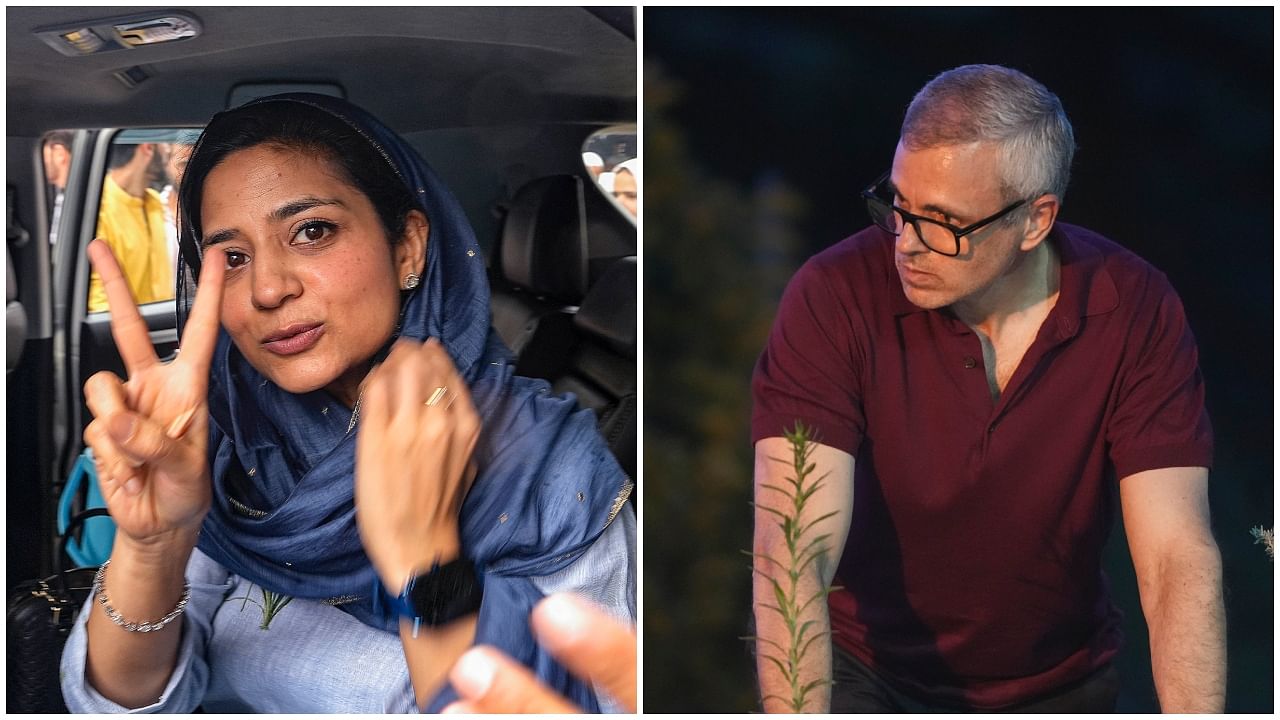
Iltija Mufti, the daughter of PDP president and former Chief Minister Mehbooba Mufti(L); National Conference vice President Omar Abdullah
Credit: PTI Images
Srinagar: The National Conference (NC) and Peoples Democratic Party (PDP)—the two leading political forces in Jammu and Kashmir— continue to embrace family ties by fielding six candidates who are direct relatives of senior party leaders.
Among the most prominent is Omar Abdullah, the son of NC patriarch Farooq Abdullah and the grandson of party founder Sheikh Mohammad Abdullah.
Omar, who has served both as Chief Minister and Union Minister, is central to the party's efforts to re-establish its influence in the region. His candidacy underscores the party's reliance on established family legacies to maintain political continuity and sway.
Another significant candidate is Iltija Mufti, the daughter of PDP president and former Chief Minister Mehbooba Mufti, and the granddaughter of party founder Mufti Mohammad Sayeed. Iltija, known for her outspoken criticism of the abrogation of Article 370, is making her electoral debut. Her candidacy highlights the PDP's strategy to capitalize on the Mufti family's legacy, even as the party navigates significant challenges.
Other candidates with strong family political ties include Mehar Ali, the son of Mian Altaf, MP from the Anantnag-Rajouri constituency, Salman Sagar, son of former minister and NC general secretary Ali Muhammad Sagar, Hilal Lone, son of former MP and minister Muhammad Akbar Lone and Sajad Shafi Uri, son of former minister Muhammad Shafi—all from NC.
With the exception of Omar Abdullah, these candidates are first-time contenders in Assembly elections, drawing on the traditional voter base of their families and parties.
Over the past six years, Modi and Union Home Minister Amit Shah have consistently criticized the Abdullahs and Muftis for promoting dynastic politics, blaming them for the “death and destruction” in Jammu and Kashmir.
However, the persistence of dynasty politics raises questions about the effectiveness of the BJP's campaign in a region where historical ties and family legacies hold substantial sway over voters.